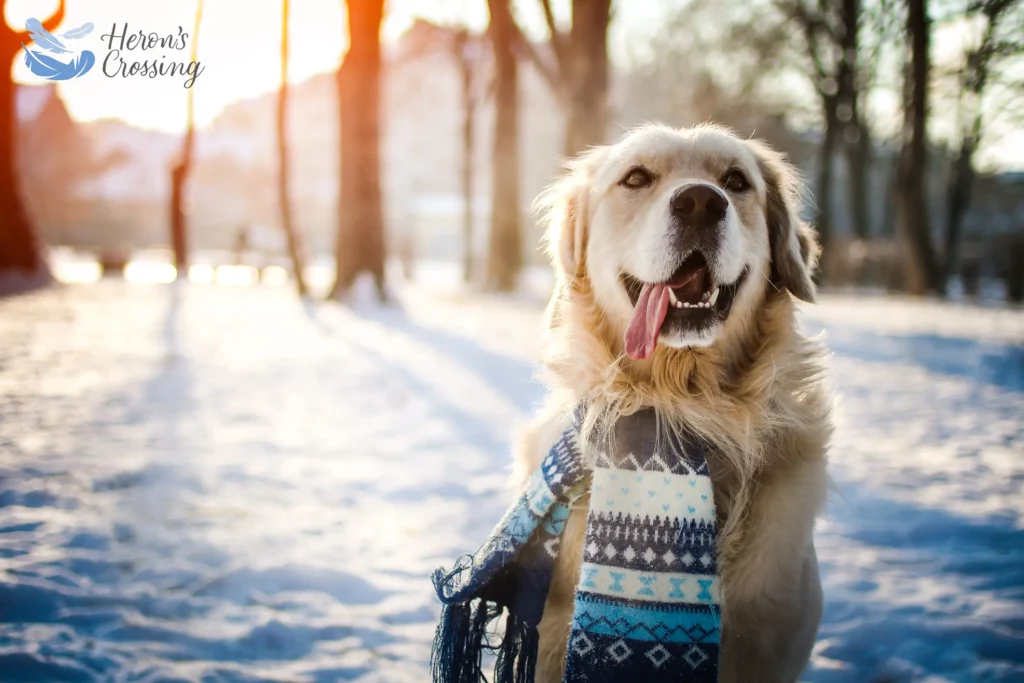As with all seniors, human or animal, aging brings frailties; issues such as arthritis, muscle weakness, inflammatory conditions, poorer breathing, and a reduced ability to fight off infections. Older dogs also have trouble regulating their temperature, or have heart issues, both of which can contribute to poor circulation and trouble with cold weather.
How can you help your old friend through the winter months?
Feel your pet’s feet and ears to determine how well she is managing her circulation. Are they warm or cold? Even if she is inside the house, a coat or booties may be needed to help her to stay extra warm. Small dogs lose body heat faster because they often have short or thin coats, little body fat, and their bodies are closer to the cold ground when they go outside.
Especially as you are trying to save on energy bills, make sure your dog is warm in the house with blankets added to bedding, and perhaps a special place in the kitchen to enjoy the warmth of the oven while you are baking. You might consider getting a heated dog bed or a self-warming pillow that includes a layer of special fabric that retains body heat. Look for sherpa and corduroy finishes. Three-dimensional texturing traps more heat than a flat weave.
Hot air rises. If you can allow your dog to get up on a sofa or bed, she will benefit from additional warmth.
Some people say that because dogs have a higher normal body temperature than humans, they can withstand the cold better. It’s actually the thickness of their fur, not body temperature, that keeps them warm. Unless you have an arctic breed, don’t expect your dog to feel any more comfortable outside than you would feel with a jacket.
It is advisable for seniors, especially ones with medical conditions, to have the additional warmth of a warm, dry coat to conserve body heat so the heart needn’t pump so hard. Get a coat that is water and wind repellent, or some sturdy knit sweaters to change out when one gets wet.
Make sure the fur between your dog’s paws is clipped short for going outside on that quick potty walk in wet or icy weather, to keep her feet more dry than otherwise. Once back inside, dry them well. For longer walks in winter weather, booties would be better for her.
When the days grow shorter, like people, your dog will slow down, sleep more, and may get depressed or have the ‘blahs’. Sunny days are the best time to take her for a walk to raise her spirits.
On your walks, if the air is cold, watch for signs of trouble breathing. If your dog slows down, is shivering, whining, looks weak or wants to stop, wait until she catches her breath, and then return home at her own pace. But, if possible, carry her back home.
When a dog’s temperature drops below 99°F, the dog can start going into hypothermia. Senior dogs, and especially smaller ones, are at a higher risk of losing body heat more quickly. So keep your fur baby warm. Cuddle up to watch movies, bake together, find a sunny windowed place to take an afternoon nap, encourage her to walk with you from room to room for exercise, and keep the outdoor walks shortened for now, until the spring.
Heron’s Crossing provides end-of-life care for pets in the Metro Atlanta area. In-home appointments with compassionate vets are available. If you’d prefer a home-like setting away from your home, our Decatur office is also available by appointment.

